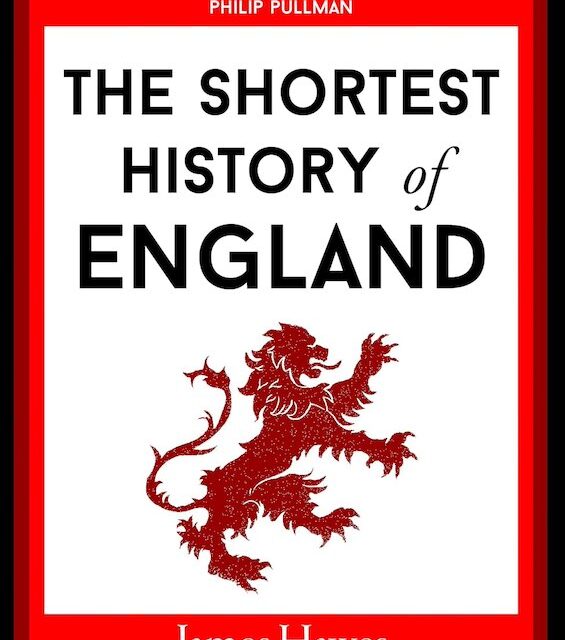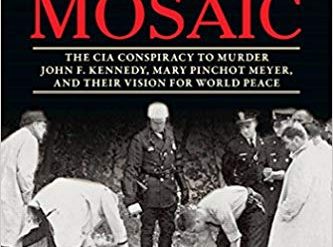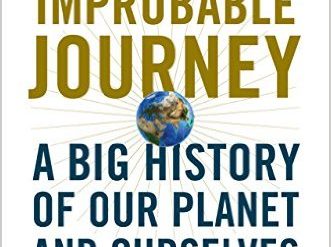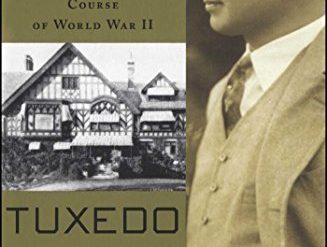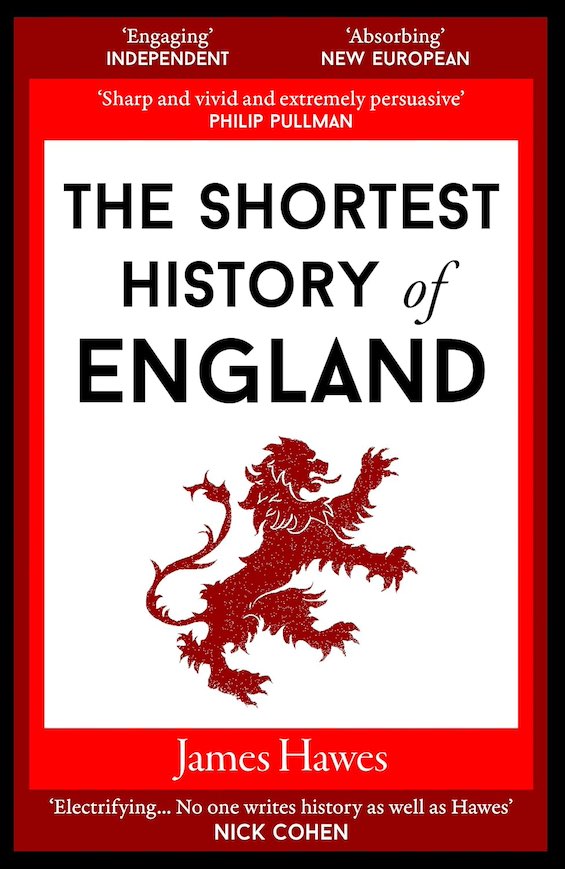
Estimated reading time: 5 minutes
For generations of boys and girls throughout the English-speaking world, British history comes across as one bloody king after another. And you might expect the same from The Shortest History of England, which weighs in at less than three hundred pages. But no. Historian James Hawes offers here a lively presentation, studded with scores of charts, maps, photos, and infographics that spotlight the principal takeaways in the text. The kings are there, and the queens, too. The most important of them, anyway. But Hawes illuminates the trends in society, politics, and the economy that shaped the United Kingdom over its tumultuous, nearly two-thousand-year history. The book is a delight to read. But don’t be fooled. This is not “English History for Dummies.” It’s readable English history. But those boys and girls might have a tough time with this account, which assumes a working knowledge of the world in its readers.
The defining reality of the North-South Divide
Here’s a taste of Hawes’ style. “The other people of Britain called—and still call—all Englishmen Saxons (sassenach, saesneg), though the Saxons were soon followed by other tribes. But what should we call them? The name Anglo-Saxon was not invented for another 450 years or so (under Alfred the Great) and the land only started being called Engla-londe in the early tenth century.” And that division in the UK between “the other people” of Wales, Scotland, Ireland, and the North, and the English of the south—the North-South Divide—is the defining reality of British history and the overarching theme of Hawes’ book. It helps explain the give-and-take of British history. And its consequences are legion. “Two different economies were developing: the global, information-based financial sector in the Southeast of England; low-skilled jobs in Outer Britain with built-in shelf lives.”
The Shortest History of England: Empire and Division from the Anglo-Saxons to Brexit—A Retelling for Our Times by James Hawes (2020) 270 pages ★★★★★
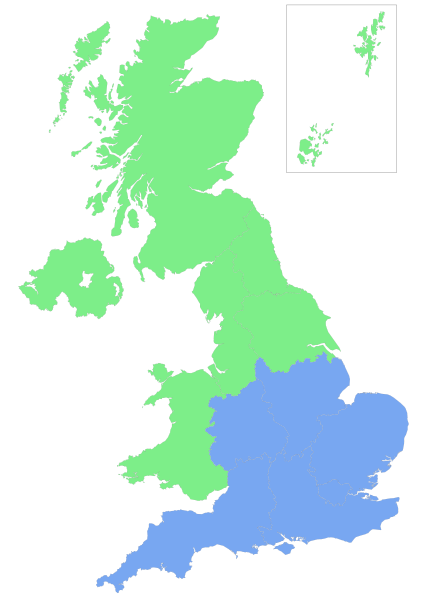
The fractured evolution of the English language
As any linguist will tell you, the English language is a bastard, birthed of the shotgun wedding of Anglo-Saxon and French, with an admixture of German, Scandinavian, and other foreign tongues adopted over the years. Hawes delights in tracing this story, referring to the period between William the Conqueror and Henry VIII as “The England of Two Tongues, 1087–1509.” And that was also the time, four centuries long, when the British class system evolved, ultimately producing an upper class speaking with clipped, grammatically correct Received Pronunciation, sometimes called “Oxford English,” full of Latinate words derived from French, and “the others” speaking a range of dialects sometimes unintelligible to the English middle class of the South and the working-class Cockneys alike.
How England built the greatest empire in history
The Shortest History of England is a superior work of historical scholarship. It’s crammed with insight you’re unlikely to find in any academic work. Here’s one delightful example: “The English-speaking empire arose because life was so bad for the common English.” And the roots of that development lay in the twelfth century, when the enclosure movement began. This was the practice by English landlords to fence in their fields to raise sheep, dispossessing the peasants and landless laborers who’d eked out a bare existence raising crops to feed their families. The movement became a stampede in the fifteenth and sixteenth centuries, creating a desperately poor underclass ripe for exportation to the colonies the monarchy was beginning to claim. Chances are, it’s unlikely you would have stumbled across that insight anywhere else. I certainly hadn’t.
About the author

James Hawes has taught creative writing at Oxford University since 2005. He is the author of ten books, both fiction and nonfiction. Three are in his “shortest history” series. Hawes was born in 1960 and grew up in both England and Scotland. He studied German and German literature at Oxford and University College London.
For related reading
You’ll find excellent reading about two specific periods in English history at:
- Victoria, the Queen: An Intimate Biography of the Woman Who Ruled an Empire by Julia Baird—An eye-opening biography of Queen Victoria
- The White Ship: Conquest, Anarchy, and the Wrecking of Henry I’s Dream by Charles Spencer—When anarchy reigned in England
You might also care to check out 20 top nonfiction books about history and 10 top nonfiction books about World War II.
And you can always find my most popular reviews, and the most recent ones, on the Home Page.

